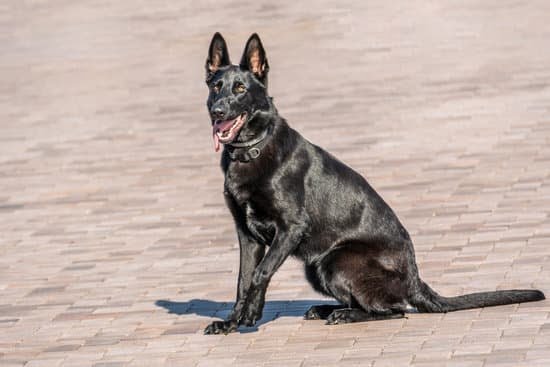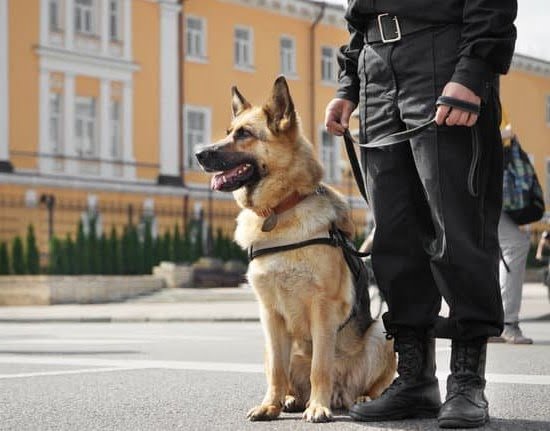How To Volunteer To Train Service Dogs
Are you considering volunteering to help train service dogs There are a few things you need to keep in mind before you get started.
First and foremost, not everyone is suited to be a service dog trainer. It can be a challenging and frustrating job, and you need to be able to remain patient and positive even when things get tough.
You should also have some experience with dog training, either through personal experience or professional training. It’s important to be able to teach the dogs the basic commands and behaviors they need to be successful as service dogs.
Another important qualification is a good understanding of the needs of people with disabilities. You need to be able to put yourself in their shoes and understand what a service dog can do to help them live more independent lives.
If you feel like you meet the qualifications and are interested in becoming a service dog trainer, the next step is to find a program that is looking for volunteers. There are many programs across the country, so do a little research to find one that is the best fit for you.
Once you’ve found a program, it’s important to contact them and find out what their expectations are. Each program will have different requirements, and you need to be sure that you are able to meet them.
If everything looks good and you’re ready to start training service dogs, get ready for a rewarding experience that will change both the dogs and the people they help for the better.
How To Train Your Service Dog Yourself
It can be difficult to find a service dog trainer that you trust, and sometimes, it’s just not feasible to pay for one. But don’t worry, you can train your service dog yourself! Here are some tips to help you get started.
1. Start with basic obedience commands. Your service dog should know how to sit, stay, come, and heel. Make sure you practice these commands regularly, and always give your dog positive reinforcement when he or she obeys.
2. Work on your dog’s ability to focus. Service dogs need to be able to focus on their handler in any situation, so it’s important to start training early and work on this skill regularly.
3. Train your dog to be comfortable in public. Service dogs need to be able to handle distractions and crowds, so it’s important to take them out and about as much as possible and work on this skill.
4. Teach your dog how to do basic tasks. Service dogs may be asked to perform a variety of tasks, so it’s important to start training early and be sure to practice regularly. Some common tasks include opening doors, retrieving items, and providing assistance with balance and mobility.
5. Be patient and consistent. Training a service dog can be a lot of work, but it’s worth it in the end. Be patient with your dog and be consistent with your training methods. If you stay dedicated, you’ll have a well-trained service dog in no time!
Adopt Dog Failed Service Training
There are a number of reasons why a dog may not be suited for service work. One such reason is if the dog has failed service training.
Service dogs are typically bred and trained to assist people with specific needs, such as blindness or diabetes. They are taught to perform a number of tasks that help their owner live a more independent life. However, not all dogs make good service animals.
Some dogs may be too timid or shy to perform the necessary tasks. Others may be too hyperactive or disruptive and thus unable to focus on their work. And still others may simply not have the temperament or personality to be a good service dog.
If a dog fails service training, it may be unsuitable for work in a number of ways. It may be too timid or shy to handle the noise and crowds of a busy city street. It may be too hyperactive to be able to sit calmly by its owner’s side. Or it may simply not have the temperament to be a service dog.
If a dog fails service training, it may be better suited for a career as a pet. Pets provide companionship and love, and they can be a great source of comfort and security. They may not be able to perform the same tasks as a service dog, but they can still provide significant benefits to their owner.
Dog Potty Training Services
When potty training a dog, it is important to remember that dogs are creatures of habit. They will usually go to the bathroom in the same place each time. This is why it is important to set up a specific potty training area for your dog and to consistently take him to that area each time he needs to go.
There are a few different ways to potty train a dog. One way is to use a crate. When the dog is not in the crate, he is closely supervised so that he can be taken to the potty area when he needs to go. Another way to potty train a dog is to use a doggy door so that he can go outside to the potty area whenever he needs to go.
The most important part of potty training a dog is to be consistent. You must take your dog to the potty area each time he needs to go and reward him when he goes in the correct spot. This will help him to learn where to go potty and will help to make the potty training process quicker and easier.
Free Service Dog Training For Veterans
Many veterans suffer from physical and mental injuries that can make living a normal life difficult. Service dogs can be a great help in these cases, but the cost of training one can be prohibitive. Fortunately, there are many free service dog training programs available to veterans.
One such program is offered by the Department of Veterans Affairs. The VA’s program offers free service dog training to veterans with physical disabilities. The program is open to veterans of all eras, including those who have served in the military since 9/11.
The VA’s program is just one of many free service dog training programs available to veterans. The American Legion, for example, offers a free service dog training program for veterans with Post Traumatic Stress Disorder (PTSD).
These programs offer a great opportunity for veterans with disabilities to get the help they need. Service dogs can be a life-changing addition to the lives of veterans with disabilities, and free training can make that possible for more veterans.

Welcome to the blog! I am a professional dog trainer and have been working with dogs for many years. In this blog, I will be discussing various topics related to dog training, including tips, tricks, and advice. I hope you find this information helpful and informative. Thanks for reading!





